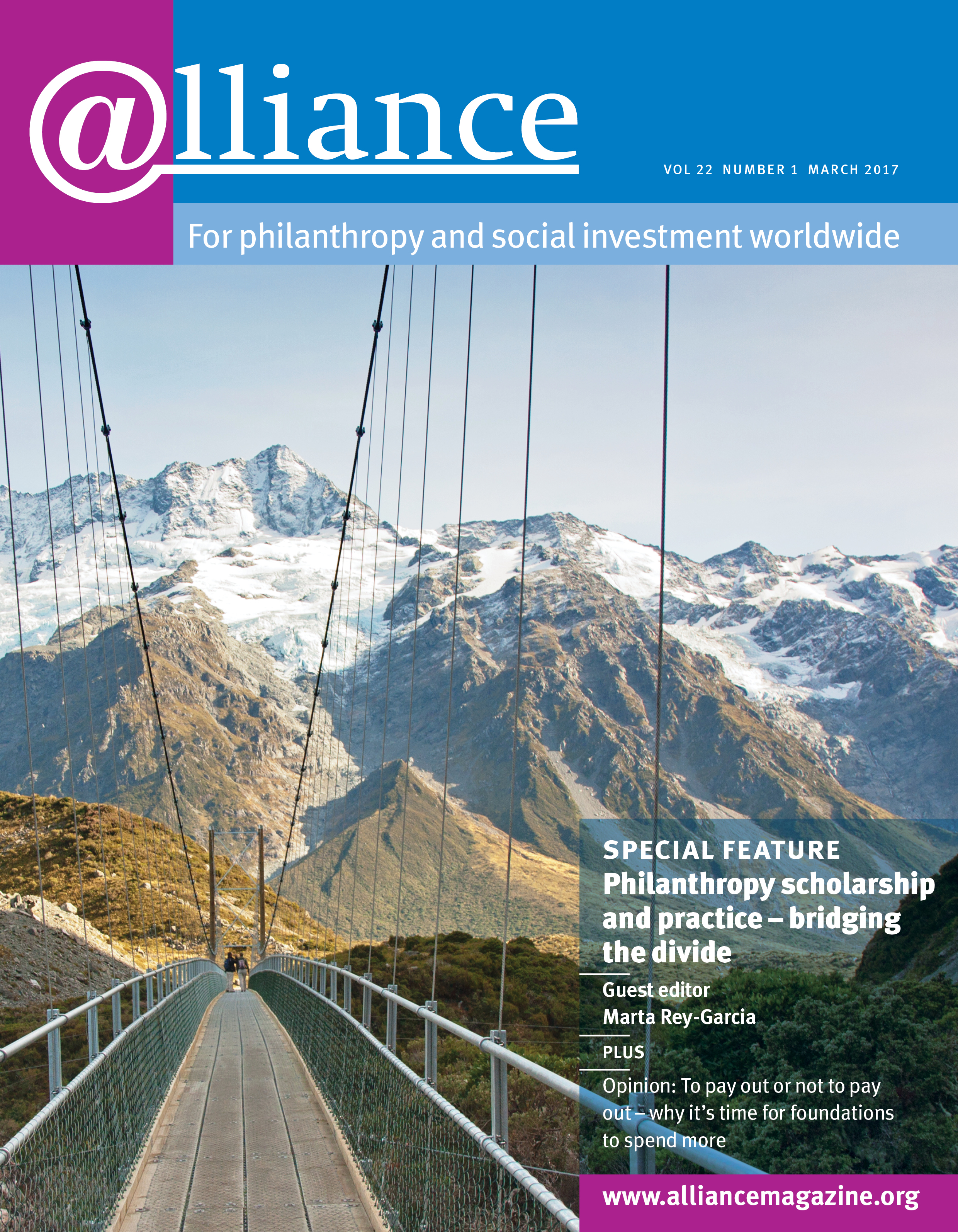Basic, trustworthy information about the scale, scope and shape of a nation’s non-profit and philanthropic sector is indispensable not only to producing empirically based public policies and private interventions, but also to supporting the effort to generate greater understanding and trust in philanthropy. This is especially true in Mexico, where the sector is underdeveloped and policymakers and the public in general are highly sceptical of philanthropy. By helping to furnish such information, scholars have provided significant leadership on both of these issues.
If we go back to 2000, there were basically three sources of data on philanthropy in Mexico: the membership list of the Mexican Centre for Philanthropy (Cemefi), the nation’s oldest support organization; the list of tax-exempt organizations provided by Mexico’s Tax Administration Service (SAT); and Johns Hopkins University’s comparative study, Global Civil Society, undertaken by Lester Salamon and local collaborators.
Today, Mexico has a wide range of data and analyses, and the research centres and academic institutions have been instrumental in helping to change this picture.
The new developments include the design, implementation, and analysis of Mexico’s first public opinion survey focused on volunteerism (Encuesta nacional de solidaridad y acción voluntaria or ENSAV) and a similar one on giving; the Encuesta nacional de filantropía (ENAFI); the publication in conjunction with the Lilly Family School of Philanthropy, Giving Mexico in 2013 (due to be updated this year); the creation of Mexico’s largest transparency website for non-profits and grantmakers, Fondos a la Vista (FALV, Funds in Plain Sight); the publication of a study of corporate foundations in Mexico; the Social Investment Seminar, the country’s first regular training opportunity for grantmakers; and a series of regional forums on Mexican tax law.
Today, Mexico has a wide range of data and analyses, and the research centres and academic institutions have been instrumental in helping to change this picture.
The publication of findings from these forums played a key role in a national coalition that prevented the repeal of tax exemption and the deductibility of donations. In addition, Mexico’s National Geography and Statistical Institute now conducts a regular census of non-profit institutions.
In all of these initiatives, a key role was played by either the Centro de Investigación y Estudios sobre Sociedad Civil (CIESC) at the Technological Institute of Monterrey or the Philanthropy and Civil Society Project (PSCP) of the Mexico Autonomous Institute of Technology.
A number of other universities have supported research and training opportunities to fields related to philanthropy, including: Anahuac University’s Social Responsibility Faculty and its Latin American Social Responsibility Centre (CLARES); Colegio de México led a study on the quality of citizenship in México (Informe país sobre la calidad de la ciudadanía en México); the recently founded ORT University offers degrees on non-profit management; and the Mora Institute’s research programme on international cooperation, development and public policy, which has recently worked hand-in-hand with Mexico’s community foundations, to mention the most important ones.
In a nation with a relatively small and under-funded non-profit sector, university researchers offer an unparalleled source of highly qualified human capital to address its research needs. The expertise and credibility of scholars has been a critical factor in advancing the field.
Two things that universities and university researchers can bring to such processes have been critical.
First, nearly every one of them was undertaken in partnership with non-profits (like Cemefi and Alternativas y Capacidades) and with support from a mix of national and international funders and support organizations. This capacity to forge such partnerships is a particular strength of universities.
Second, given the aforementioned distrust of the sector, Mexican policymakers often dismiss non-profit practitioners and philanthropists as being self-interested when they advocate for public policies. The objectivity and rigour of scholars therefore become crucial assets in influencing public policy. In a nation with a relatively small and under-funded non-profit sector, university researchers offer an unparalleled source of highly qualified human capital to address its research needs. The expertise and credibility of scholars has been a critical factor in advancing the field.
Jacqueline Butcher is director at Centro de Investigación y Estudios sobre Sociedad Civil. Email jacqueline.butcher@ciesc.org.mx
Michael Layton is senior research fellow, Alternativas y Capacidades. Email mlayton123@gmail.com








Comments (0)